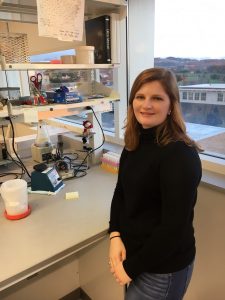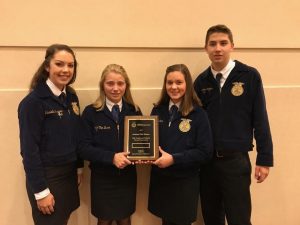Take Advantage of Our Dairy Foods Extension Services
There are many services offered through our Extension Program, the Food Safety Laboratory, and the Expertise of our team that can help your organization, whether it’s to address acute or persistent food safety or quality issues, to prepare for an audit, to implement or improve continuous improvement or troubleshooting procedures, or to develop improved training programs for a team or for individuals that you want to grow in your organization. We can help you take things off your to-do list in 2021.
The list below encompasses many of the services we encourage businesses to take advantage of. If your organization is interested in any of the services listed below, or more specific support not outlined below, please reach out to Louise Felker at lmf226@cornell.edu at any point, or submit a request through our website. We also encourage individuals and organizations to reach out to us with any questions or issues through our “Ask an Expert” platform. These questions will be directed to the appropriate team member. These services in combination with our workshop programming allow us to equip food businesses with the knowledge and tools to flourish.
- Lab for Molecular Typing: The lab offers a wide variety of technologies to subtype, identify, and characterize microorganisms to the genus, species, subspecies, and subtype level including Pulsed Field Gel Electrophoresis (PFGE) and Whole Genome Sequencing (WGS). Services are strictly confidential. We do not submit isolates or patterns to the CDC unless specifically requested by the submitter/customer. A considerable number of companies use our services to enhance their environmental monitoring programs or to help troubleshoot microbiological issues.
- Pathogen Environmental Monitoring Validation Services: We are available to review or assist in the development of your pathogen environmental monitoring programs. We also validate environmental monitoring programs through plant visits with collection of samples; this will help you determine whether your program is designed and implemented correctly to identify any issues you may have; we can also design these visits to represent mock FDA “swabathons”, helping you ensure your company is ready for a visit by the FDA or another regulatory agency.
- Process Authority Review: For those who require a scheduled process to begin processing a dairy food product, our team member Rob Ralyea will review your proposed process for food safety. This process review will then be submitted to your regulatory authority for their approval. We also will refer you to other Cornell process authorities if you need help with non-dairy processes.
- Food Safety Plan Review: Our team members are instructors of both HACCP and Preventive Controls for Human Food curricula, and are qualified to review or assist in developing your facility’s food safety plan. This service is useful for facilities who have an existing plan, are in the process of developing a new plan, or who are modifying their HACCP plan to meet the requirements of a FSMA food safety plan.
- Gap Audit: Gap audits are used to identify areas for improvement in your food safety or quality system, and are a great way to prepare for a GFSI audit. Kimberly Bukowski, who is also an SQF auditor, visits your facility to evaluate both documentation and personnel/operational practices to help identify gaps in your systems.
- On-site consulting: Extension personnel visit and consult with dairy processors to help troubleshoot or improve the food safety and quality of their products. Examples include visits to assess technical issues including quality, spoilage, or food safety concerns, food defense plan review, and special project consultation, and documentation review.
- Milk Quality Improvement Program: Offers targeted fee-for-service microbiological and sensory testing to assist dairy processors with troubleshooting quality issues. Services include testing for groups of spoilage organisms, identification and subtyping, defect identification, and more.
- Sensory Evaluation Center: Services include Consumer Acceptability, Preference, and Discrimination Testing. In addition, the program provides consultations in all matters related to sensory product testing: appropriateness of particular test methods, study sample size, questionnaire design, statistics, and analyses, sample blinding, and serving sizes, to name a few.
- Institute for Food Safety COVID-19 Resources: This website is consistently updated with relevant resources and information for the food industry. Resources include information on upcoming industry office hours, weekly videos, templates and trainings, and updates on laws, regulations, and regulatory guidance.
- On-farm Rapid Response Team: Offers timely assistance to NY dairy processors to troubleshoot farm related quality and safety issues
- Alcaine Research Group (ARG) Dairy Lab: Quality control, waste reduction, and new product development opportunities
- Food Processing Development Laboratory (FPDL): The Cornell Food Processing Development Laboratory (FPDL) is a licensed dairy plant in NY State and offers a unique food product development and manufacturing space that allows individuals and companies to perform research, develop new products, and start new food related businesses. Recognizing the diverse needs of industry, we offer an opportunity to utilize this facility under four different types of arrangements (see flyer here):
-
- Product Testing: For small scale pilot research projects that can be completed in 100 days or less.
- Cheese and Dairy Product Incubator: Designed for companies who do not have an existing facility, the FPDL can be used for initial product development and production.
- Cheese and Dairy Product Incubator (Level II): Designed for companies who do not have an existing facility, but have done prior product development or for companies that have an existing facility but require an outside facility for specialized needs.
- Contract Manufacturing and Product Development: For small scale manufacturing and pilot production (e.g. identifying processing issues, optimizing processes prior to large scale manufacturing, samples for market research).
If you need help with anything else that is not listed here, please also contact us – it is likely that we have the resources to help you.





